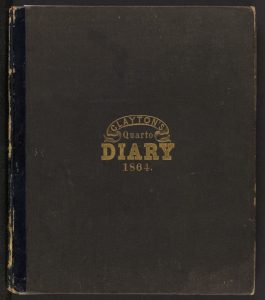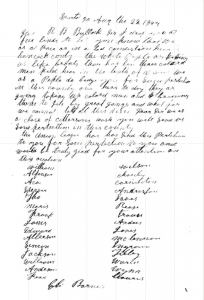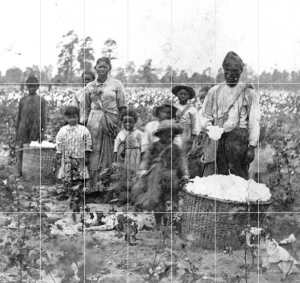Diary of Nathan W. Daniels

In this diary of Nathan W. Daniels, he discusses the issues of the time after former slaves became free after the Civil War. Nathan W. Daniels was a Union army officer and Freedmen’s Bureau advocate. He discusses in the diary how the Freedmen’s Bureau will help former slaves become equal in society. He pushed for government officials to strongly implement these policies for the betterment of society. This diary is important because the diary accounts the white perspective on the effects of the Freedmen’s Bureau during this time when many white believed that the Freedmen’s Bureau would give rights to those who they believed, did not deserve them. This dairy compared to the petition, shows how not all whites during this time were against former slaves’ progression in society and some even advocated for equal rights in all aspects of life.
William Wilson’s Petition

This a petition written on August 22, 1869 by a black man named William Wilson. Wilson wrote this petition to Rufus Bollock who was the Governor of Georgia. Wilson wrote to Governor Bollock to persuade him to have the government intervene and protect the African Americans in this town because they are being killed frequently by the Klu Klux Klan. He begged for protection and other black signed this to hopefully gain protection. This petition offers the black prospective of how dangerous it was to live as a “freed” black person. These violent forms of discrimination placed on African Americans help show that mentality of whites during this time, being frustrated about the new freedom that African Americans now possessed. The petition offers the other perspective of white during the Reconstruction Era and the beginnings of discrimination in the slowly progressive society.
Black Family during Reconstruction

This is a photo of an African American family in this era. After President Johnson vetoed the 1866 Civil Rights Bill, blacks were once again forced to work on white plantations in order to survive. This form of job discrimination deeply hurt African Americans because it forced Africans Americans back into ‘slaves” without the official title since they were extremely underpaid and forced to withstand horrible living conditions once again called sharecropping. Sharecropping was a “system that allowed blacks to rent a portion of the plantation, with the crop divided between the workers and owner at the end of the year” (Foner, 574). This was also another form of job discrimination because sharecropping stopped black from making profit off crop’s harvest which could help them better their lives financially keeping them locked in cycle of poverty.
